标签:style blog http io ar color 使用 sp java
|
?
Spring模块图:
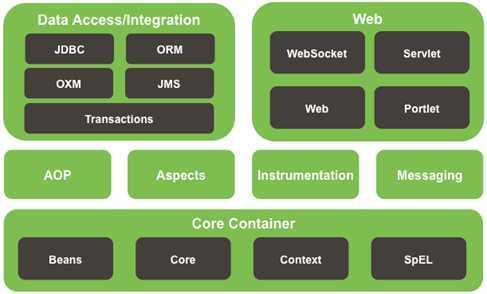
?
?
Eclipse开发Spring时需要安装spring插件:springsource-tool-suite-3.6.3.RELEASE-e4.4.1-updatesite.zip(下载链接:http://spring.io/tools/sts/all 需要FQ)。
?
Eclipse—->help—> install new software : 点击Add按钮 ,再点击Archive 选择你刚刚下载的zip文件,这里选择 后面带 spring IDE的四项,并把Contact all updatesite….前面的勾去掉(这个是联网更新),一直点点击 下一步, 最后重启eclipse即可
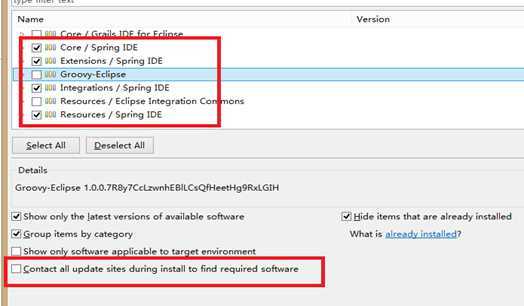
?
????新建Java工程 :命名spring-1;并新建Folder 命名为lib(放Spring基本的jar包)
在lib中导入:commons-logging-1.1.3.jar在struts的lib中可以找到,其余四个都在spring-framework-4.1.2.RELEASE的libs文件夹下,记得将lib下的jar包add Build Path;
????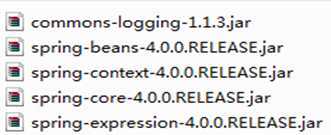
?
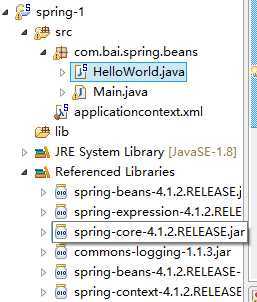
?
其中HelloWorld.java
package com.bai.spring.beans; public class HelloWorld { ????private String name; ????public void setName(String name){ ????????this.name=name; ????} ????public void hello(){ ????????System.out.println("hello:"+name); ????} } |
在src下新建spring配置文件,命名为applicationcontext.xml:
applicationcontext.xml
<?xml version="1.0" encoding="UTF-8"?> <beans xmlns="http://www.springframework.org/schema/beans" ????xmlns:xsi="http://www.w3.org/2001/XMLSchema-instance" ????xsi:schemaLocation="http://www.springframework.org/schema/beans http://www.springframework.org/schema/beans/spring-beans.xsd"> ? ????<!-- 配置bean --> ????<bean id="helloworld" class="com.bai.spring.beans.HelloWorld"> ????????<property name="name" value="Spring"></property> ????</bean> </beans> |
?
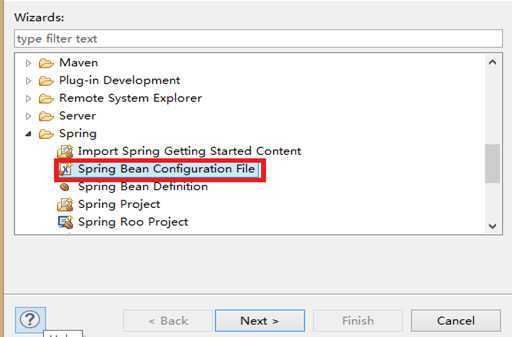
?
Main.java
package com.bai.spring.beans; ? import org.springframework.context.ApplicationContext; import org.springframework.context.support.ClassPathXmlApplicationContext; public class Main { ????public static void main(String []args){ ????????/*????不使用springde 情况 ???????? * //创建一个HelloWorld对象 ????????HelloWorld helloworld=new HelloWorld(); ????????//为对象赋值 ????????helloworld.setName("baixl"); ????????//调用hello()方法 ????????*/ ????????ApplicationContext ctx=new ClassPathXmlApplicationContext("applicationcontext.xml"); ????????HelloWorld helloworld=(HelloWorld) ctx.getBean("helloworld"); ????????helloworld.hello(); ????} } |
运行结果:

标签:style blog http io ar color 使用 sp java
原文地址:http://www.cnblogs.com/baixl/p/4138717.html